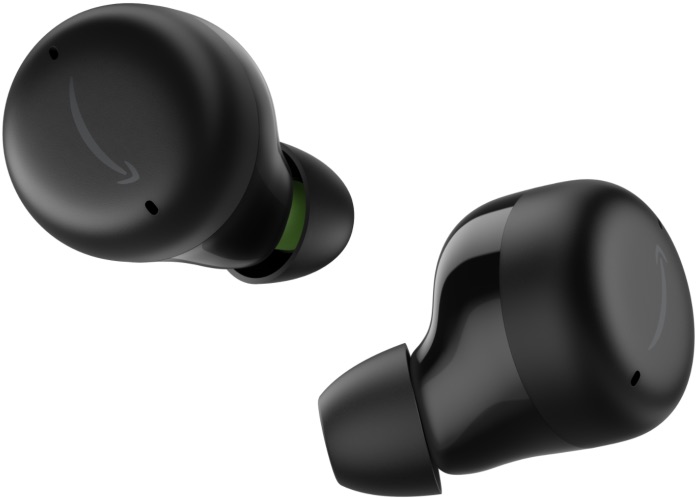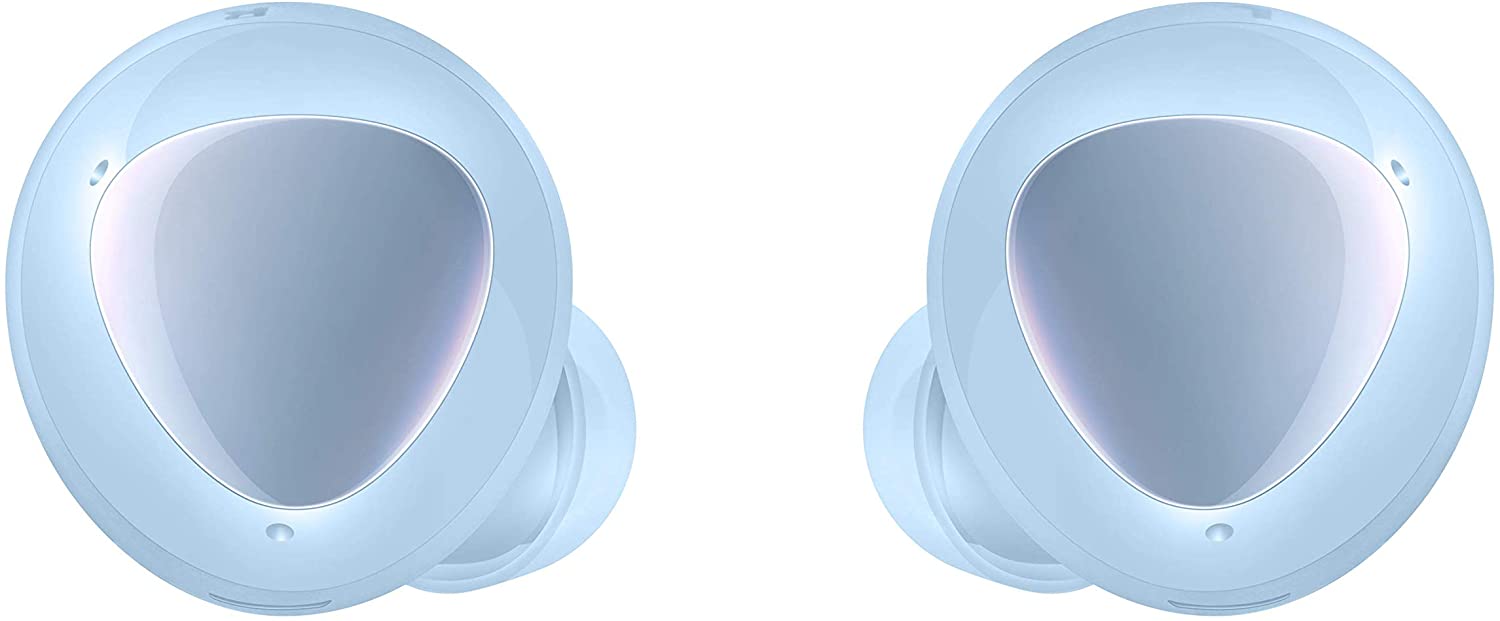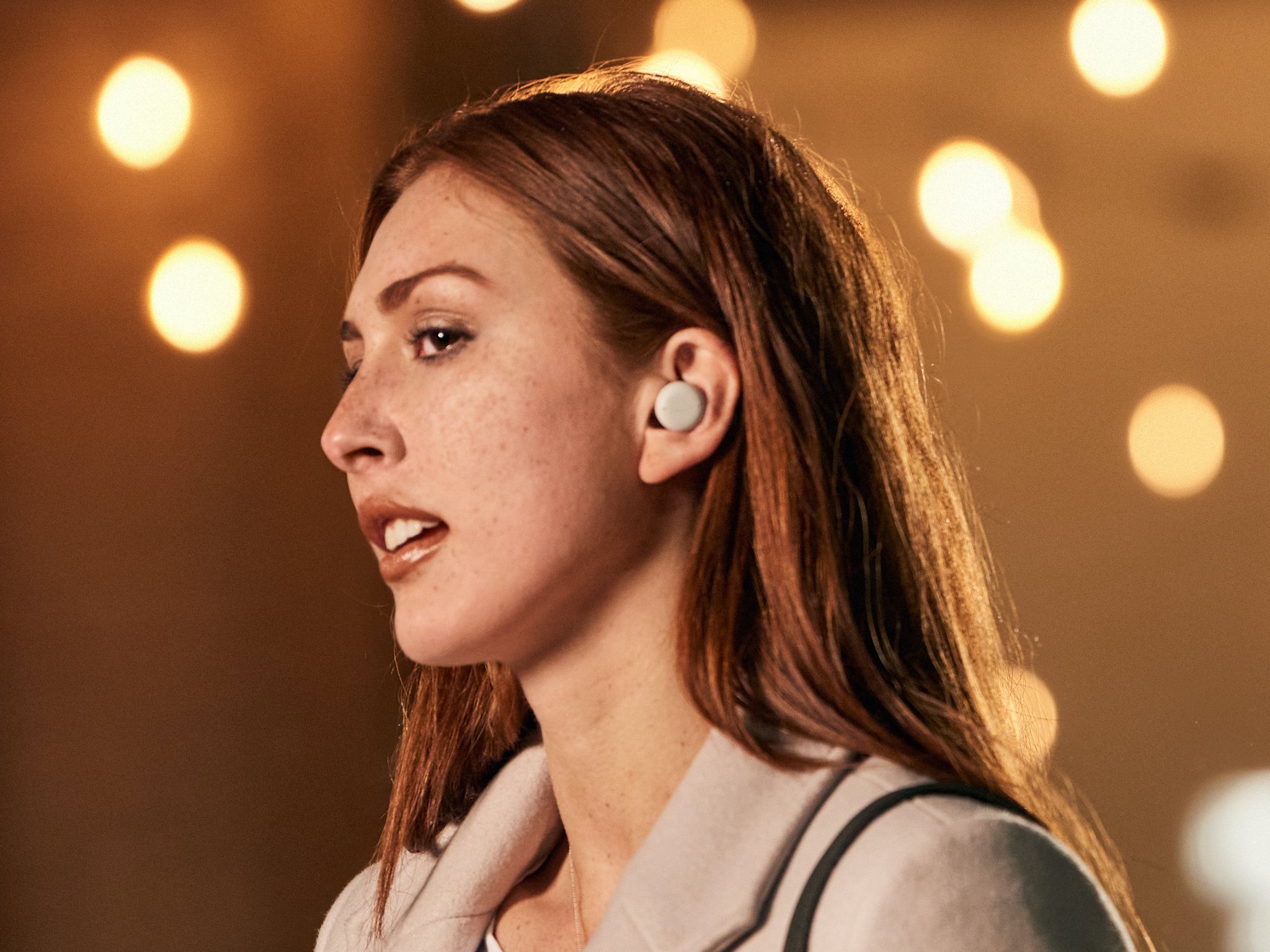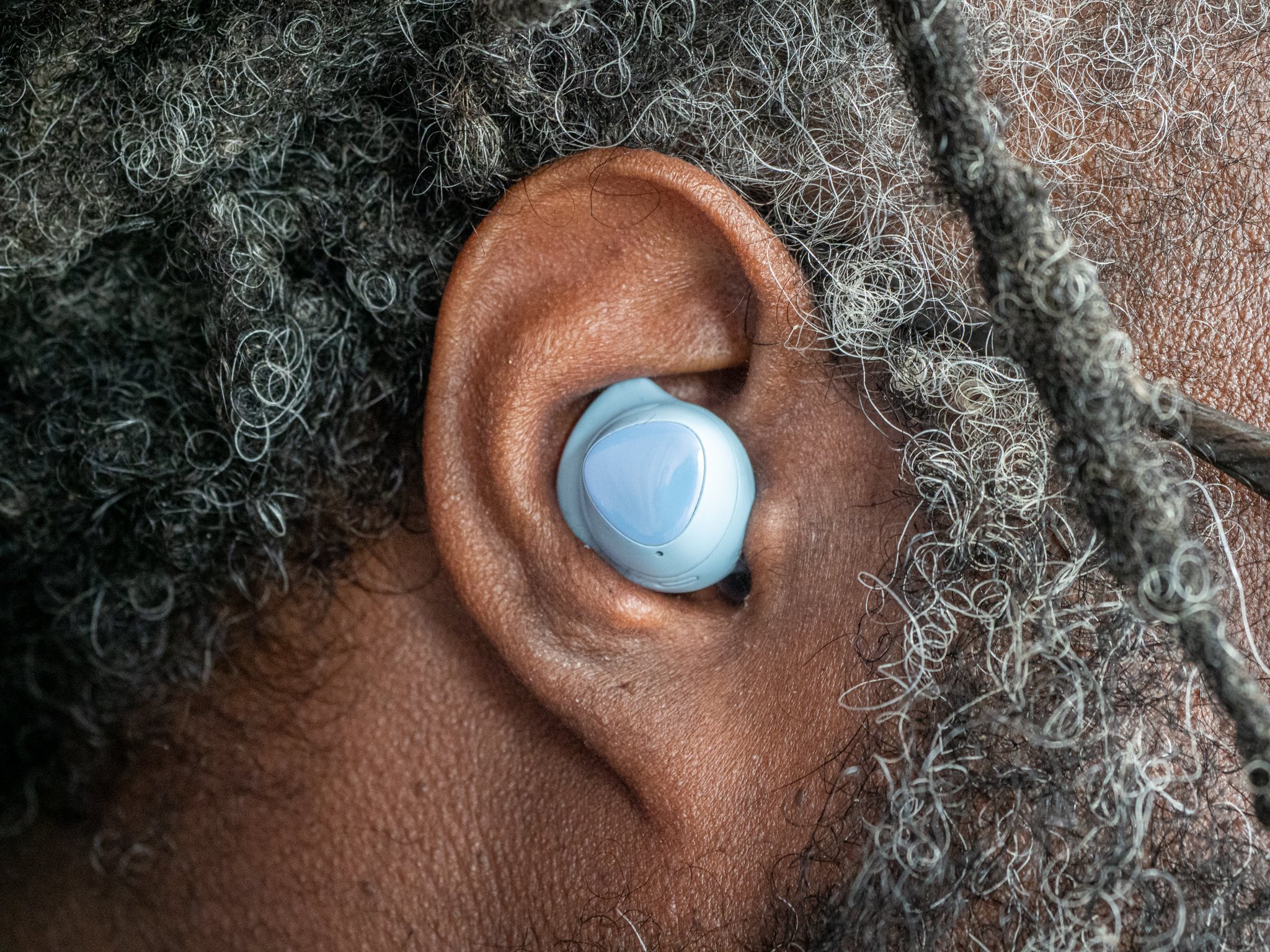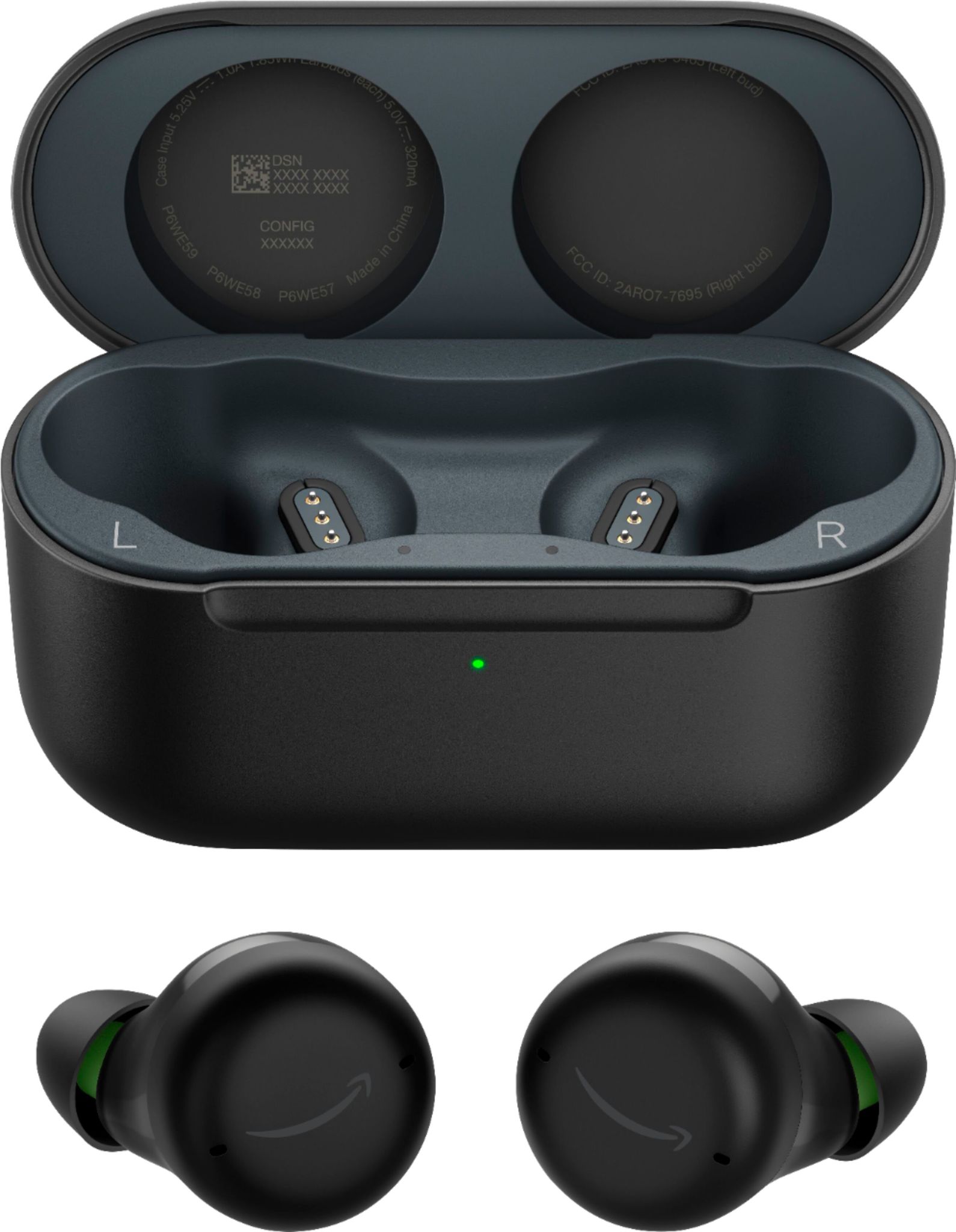Returning Echo
Amazon Echo Buds (2nd Gen)
Pros
- Smaller and better fit
- Hands-free Alexa access
- Improved ANC performance
- Maintains EQ support
- Great support on both iOS and Android
- Faster charging
Cons
- No real difference in battery life
- No multipoint Bluetooth
- Finicky touch controls
The second-gen Echo Buds are Amazon's latest effort to improve upon their debut earbuds, and the results are largely focused on getting more out of the audio from the start. A smaller size and better fit, plus active noise cancelation only serve to make these newer buds worthy successors.
Sticking around
Samsung Galaxy Buds Plus
Pros
- Long battery life
- Great sound
- USB-C and wireless charging
- Ambient mode
- Customizable gestures
- Great color options
Cons
- No ANC or ANR support
- Glossy case gets messy
The Galaxy Buds Plus were the first real leap forward for Samsung when it came to making better wireless earbuds, and they remain a pretty solid option. The colorful variants add an aesthetic appeal that you don't always see with others, though you do sacrifice some tech to get that look.
It may not always seem like a fair fight pitting two pairs of wireless earbuds against each other when there's a year between them, but these two are more evenly matched than it may appear. The Amazon Echo Buds (2nd-Gen) are a sequel in the the same way the Samsung Galaxy Buds+ were when they first launched. Both take corrective actions to make certain features perform better, as well as improving sound quality.
Amazon Echo Buds (2nd Gen) vs. Samsung Galaxy Buds Plus: What sets them apart?
Comparisons are almost endless when it comes to true wireless earbuds because there are so many combinations to consider. This one is more interesting because what sets them apart isn't always dramatic. At this point, either pair could fall under a "value" purchase, so there's a performative upside relative to what you're paying. It just depends on whether either pair delivers what you're looking for.
Amazon addressed a few things from a hardware perspective that stand out. For one, there's now a color choice, thanks to a white variant available. More importantly, the 2nd-gen Echo Buds are smaller for a better fit. Somewhat ironic because that's exactly what Samsung did with the Galaxy Buds+. With comfort playing such a pivotal role in both cases, the respective specs would give the impression that most features are very similar. There's more to it than that when you consider what's not available in one pair or the other.
| Amazon Echo Buds (2nd-Gen) | Samsung Galaxy Buds Plus | |
|---|---|---|
| Durability | IPX4 | IPX2 |
| Bud battery life | 6.5 hours | 11 hours |
| Case battery life | 19.5 hours | 22 hours |
| Wireless charging case | Yes | Yes |
| Connectivity | Bluetooth 5.0 | Bluetooth 5.0 |
| Digital assistant support | Alexa, Google Assistant, Siri | Bixby, Google Assistant, Siri |
| Supported audio codecs | SBC, AAC | Scalable, SBC, AAC |
| Speaker size | 6mm drivers | 6mm drivers |
| Active noise cancelation (ANC) | Yes | No |
| Ambient sound mode | Yes | Yes |
It's battery life that stands out as the biggest discrepancy, but there's a key reason for that. Samsung never equipped the Galaxy Buds+ with active noise cancelation (ANC), nor with any significant level of sweat and water resistance. Sure, even if you take ANC out of the equation, the Echo Buds still lag behind, as the 6.5 hours Amazon notes in its specs refers to when the feature is turned off. Turn ANC on, and the maximum drops to just five hours.
In total, the the two are closer together when looking at charges coming from the case. It's just the number of charges that make all the difference. With the Buds+, it's one extra charge. With the Echo Buds, it's an extra three. But when ANC is always on, the case gets you just 15 hours extra, which is considerably less than what Samsung offers.
The other factor is Alexa. Unlike most earbuds, where voice assistants are largely tied to the paired phone, Alexa can operate independently on the earbuds, so long as they're paired to a phone with a data connection. That means Alexa is always looking out for the wake word, which can impact battery life as well. Samsung doesn't face the same battery-draining functions, but credit to the company for prioritizing battery life.
Samsung didn't radically change how the Galaxy Buds+ sounded compared to their predecessors, opting to focus on the ancillary features to support the audio experience. Amazon took a similar approach, though did give audio quality some importance by putting in cleaner drivers. The original Echo Buds sounded okay, except for the highs and mids getting a bit too bright. That's now much better. Throw in ANC, and there's a much better combination at work to keep the music in, and the outside noises out. A snugger fit is a big factor in making all that work, and it may turn out to be the "glue" that makes these new Echo Buds more consistent.
A snugger fit is a big factor in making all that work, and it may turn out to be the "glue" that makes these new Echo Buds more consistent.
Samsung had the fit down pat already, so the Buds+ aren't lacking in that regard. Sound quality got a modest improvement, whereas phone call quality got a much better one. There's no ANC, so passive isolation is of huge importance, putting a lot of the onus on how well they fit. Both earbuds have dedicated app support with an equalizer to get more out of the sound. The difference is that Samsung offers presets, whereas Amazon uses a basic EQ to control bass, mids, and treble.
Where the two feel similar is in the onboard touch controls, which are fine when they work, and finicky when they often don't. It's an issue the entire industry continues to wrestle with, not so much because the tech doesn't work, just that it doesn't work consistently well.
Amazon Echo Buds (2nd Gen) vs. Samsung Galaxy Buds Plus: Talking to someone
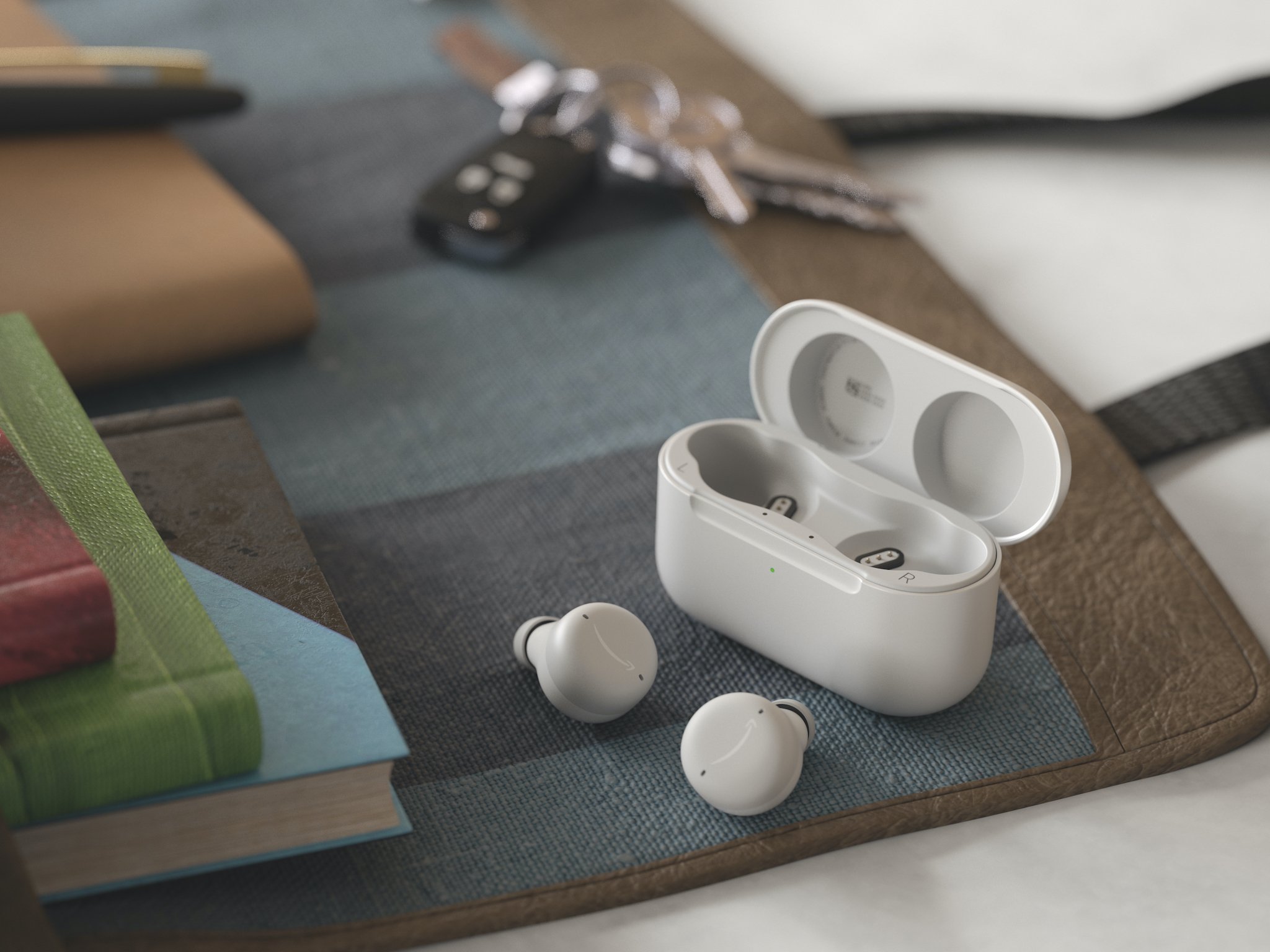 Pictured: Echo Buds (2nd Gen).
Pictured: Echo Buds (2nd Gen).
Both companies promote their own voice assistants when marketing their respective earbuds, so it's hardly surprising that they try to angle users to talk to them. Amazon took it further by integrating Alexa into the earbuds more than Samsung did with Bixby. The good news is you don't have to if you don't want to. Not only can you turn the feature off, but you could also select Google Assistant or Siri (for iPhone users), if you prefer those instead.
Alexa does hold a nice advantage in how well it ties into Skills. For instance, you can use the Echo Buds to tell Spotify what song, artist, or playlist to play. It's not new to the second-gen earbuds, but is a contrast from the Buds+, where Alexa isn't available, unless you download the app and use it there.
Amazon Echo Buds (2nd Gen) vs. Samsung Galaxy Buds Plus: Which one should you go with?
Samsung has always suggested the Galaxy Buds+ are part of the company's wider ecosystem. That is true, to an extent, but they work well with any Android phone, so the exclusivity doesn't really apply. Amazon's second-gen Echo Buds are the same in that they can work well with any device, so compatibility isn't an issue here, either way.
The difference is that one pair (Echo Buds) is at the early stage of its lifespan, whereas the Buds+ are in the latter stage. The one caveat is that Amazon isn't afraid to shelve a product only 12-18 months after releasing it, so it wouldn't be surprising if this happens again. That doesn't mean Amazon wouldn't continue supporting it, much like Samsung has done with its earbuds.
Moving on
Amazon Echo Buds (2nd Gen)
A natural extension of Amazon's ecosystem
Amazon's encore attempt with its Echo Buds bring in proper ANC and newer drivers to improve sound where it counts.
Budding legacy
Samsung Galaxy Buds Plus
A plus worth a listen
$110 at Amazon $110 at Best Buy $110 at B&H
The Galaxy Buds+ prove to be effective at doing the key things right, making them still good value at this stage.
Source: androidcentral
